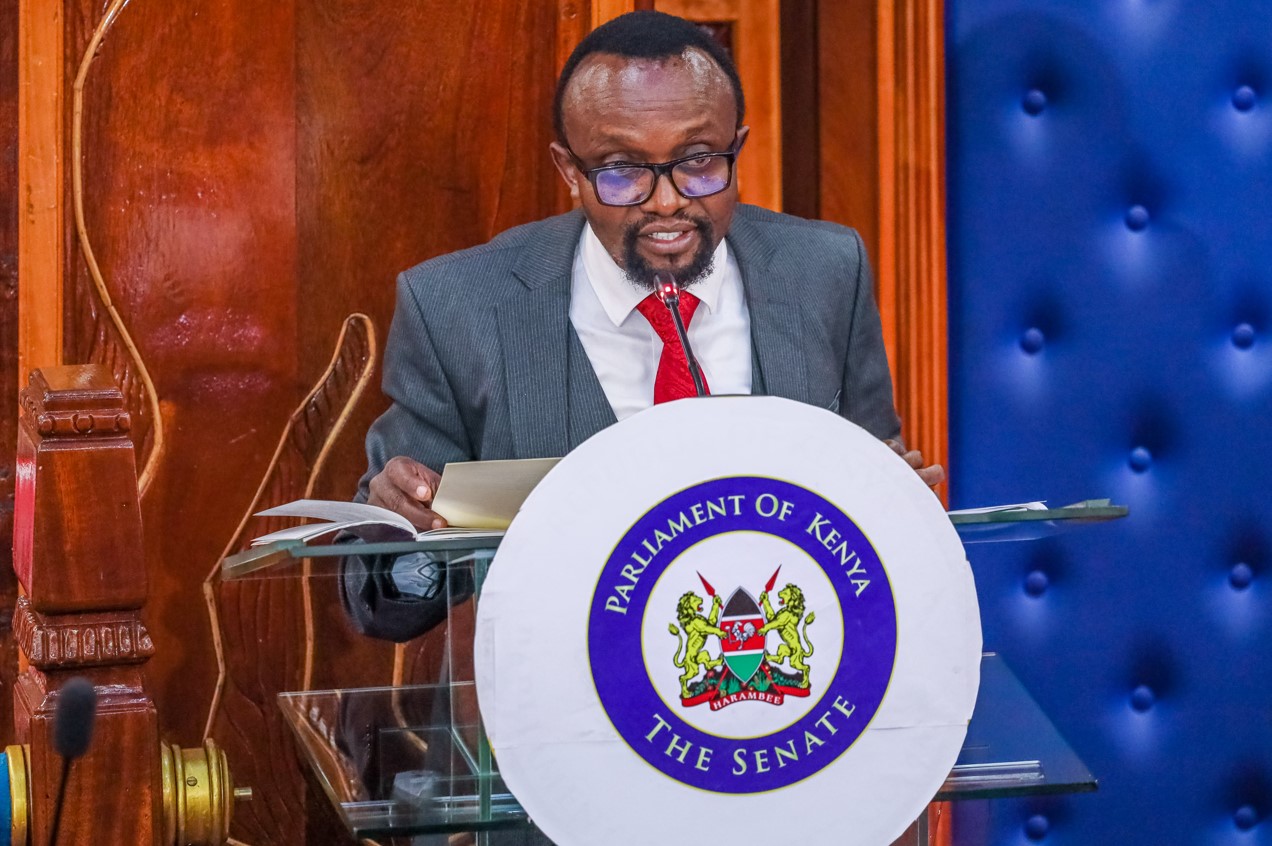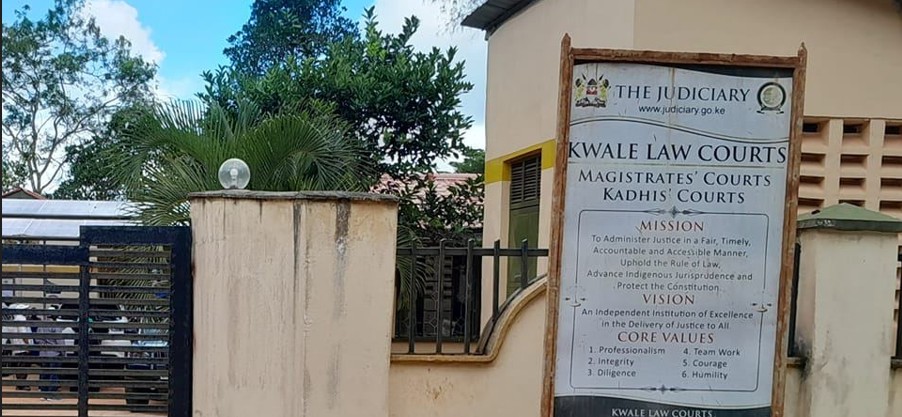Senate to decide Meru Governor Mwangaza's fate today after impeachment trial

Mwangaza will have the opportunity to present her case before the House today, the second and final day of the trial.
Embattled Meru Governor Kawira Mwangaza will know her fate on Tuesday following her impeachment hearing in the Senate, which began on Monday, August 19, 2024.
The senators will either vote to uphold her impeachment as per the Meru County Assembly motion or dismiss the charges levelled against her by the Members of the County Assembly (MCAs).
More To Read
- Impeachment storm hits Nairobi as MCAs collect signatures to oust Governor Sakaja, deputy Muchiri
- Senate showdown as Kericho Governor Erick Mutai faces impeachment trial
- Embattled Kericho Governor Erick Mutai challenges impeachment, cites manipulated vote
- Kingi warns Isiolo governor to rebuild trust, not celebrate, after Senate impeachment reprieve
- Former Meru Governor Kawira Mwangaza named UMP party leader
- Senate to hear Isiolo Governor Abdi Guyo's impeachment in plenary on July 8 and 9
Mwangaza will have the opportunity to present her case before the House today, the second and final day of the trial.
She will also be open to questions and clarifications from the senators.
This will be followed by closing statements by the parties for a period not exceeding one hour each.
Even though the impeachment hearing is before the plenary, where all 67 senators are expected to have participated, not all will decide Mwangaza's fate.
Only 47 elected ones will vote to seal Mwangaza's fate.
At least 24 elected senators will be required to vote in favour of the motion to uphold the governor's ouster from office.
The first-term governor has survived two impeachment motions, with the senators giving her a chance to continue serving the people of Meru.
In her first impeachment case on December 30, 2022, a Senate 11-member committee chaired by Majority Whip Boni Khalwale acquitted Mwangaza after voting unanimously not to uphold the governor's impeachment.
The senate's report revealed that there was no evidence of the governor's husband, Murega Baichu, receiving a salary for the alleged appointments.
"The governor's husband had not received any salary or benefits from the Meru County Government and was not on the county payroll." "No evidence was submitted to prove any of the Governor's alleged appointments or disregard for the criteria for the establishment of offices within the County Public Service," the Committee report noted.
The committee, however, found out that Governor Mwangaza violated the law by failing to seek the approval of the County Assembly for the reappointment of County Secretary Rufus Miriti, but the violation does not meet the threshold for removal from office.
Khalwale-led committee further stated that no evidence was presented by the County Assembly supporting the alleged appointment of unqualified persons, namely Munene Samaritan, Ernest Mutembei and Henry Mzungu.
 Meru Governor Kawira Mwangaza. (Photo: Governor Kawira Mwangaza)
Meru Governor Kawira Mwangaza. (Photo: Governor Kawira Mwangaza)
The Committee also found the governor not guilty, citing evidence that the governor's roadside appointments did not materialise with the issuance of appointments.
It was also noted that no evidence of Governor Kawira's forced entry into the assembly precincts was presented before the committee.
On allegations of violation of Public Finance Management Laws, the Committee noted that Meru Teaching and Referral Hospital was a semi-autonomous government agency, and the Hospital Board Act, 2019 allows the use of hospital funds to defray its expenses.
Mwangaza survived her second impeachment on November 9, 2023, after senators acquitted her of all seven charges brought against her by the County Assembly.
In a vote, the Senate plenary dismissed all of the charges, giving her a fresh start.
Mwangaza was then charged with misappropriation and misuse of resources, nepotism, bullying, illegal appointments, contempt of court, and illegally naming a road after her husband.
She vigorously defended herself, denying all the charges and claiming that the male-dominated county assembly was victimising her as a woman leader.
In the first charge, which pertained to misappropriation and misuse of public resources, 28 senators voted to declare the governor innocent, while 19 senators voted to find her guilty.
Regarding the second charge of nepotism and unethical practices, 42 senators deemed it unsubstantiated, while five senators found her guilty.
On the third charge, which accused the governor of bullying, vilifying, and demeaning other leaders, 44 senators cleared her, with only three senators stating she was guilty.
In the fourth charge, which involved illegal appointment and usurpation of statutory powers, 26 senators voted against it, while 20 voted in support. One senator abstained from voting.
44 senators dismissed Charge 5, which alleged contempt of court, while three senators supported the accusation.
43 senators rejected the sixth charge, which accused the governor of naming a road after her husband, while four senators agreed.
 Lead counsel Ndegwa Njiru representing the Meru County Assembly during the impeachment hearing of Governor Kawira Mwangaza at the Senate on August 19, 2024. (Photo: Senate)
Lead counsel Ndegwa Njiru representing the Meru County Assembly during the impeachment hearing of Governor Kawira Mwangaza at the Senate on August 19, 2024. (Photo: Senate)
In the final charge, which alleged contempt of the assembly, 36 senators found the offence unsubstantiated, while 10 senators declared the governor guilty.
Should the Senate decide to uphold Mwangaza's impeachment, she will become the first governor under President William Ruto's administration to face impeachment.
Mwangaza will then have two options: either to agree with the Senate and go home or to move to court, where she can obtain stay orders to remain in office while pursuing justice.
When the courts refuse to grant her an injunction, the governor will go home.
Article 182 of the constitution provides for the procedure to fill a vacancy in the office of the county governor.
When the Senate impeaches the governor, the deputy governor shall assume office as county governor.
The deputy governor will serve the remainder of the county governor's term.
The next move will be to have Meru Deputy Governor Isaac Mutuma sworn in to serve for the remaining term.
He will then have to nominate a deputy governor.
Top Stories Today













































